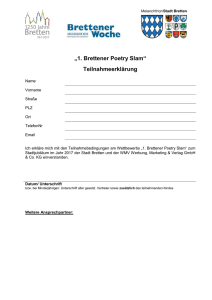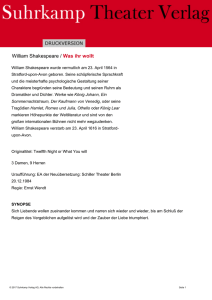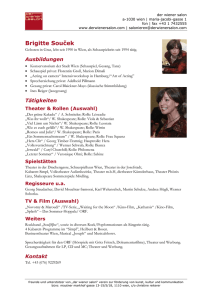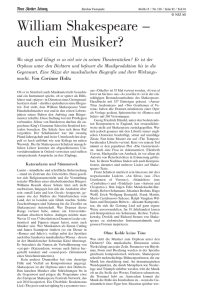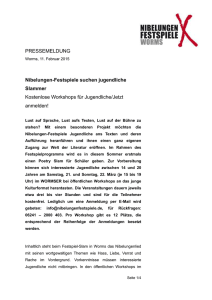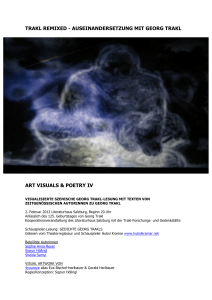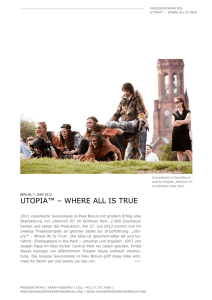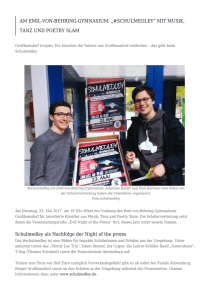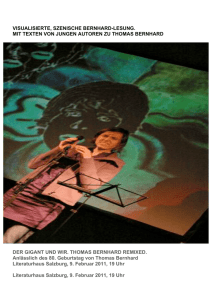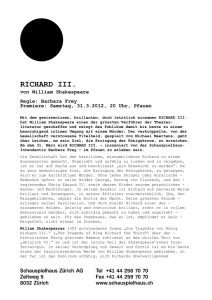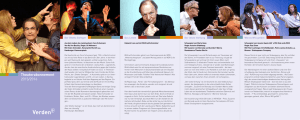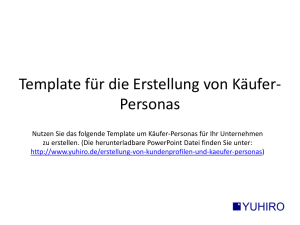Speaker, poetic voice, poetic personae
Werbung
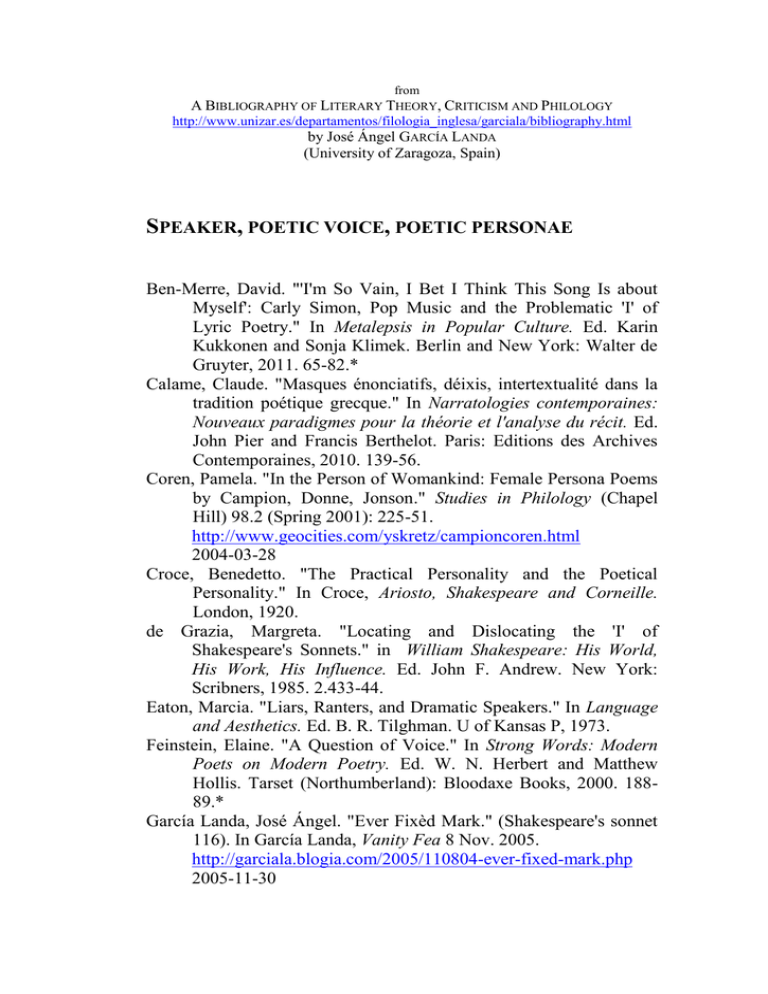
from A BIBLIOGRAPHY OF LITERARY THEORY, CRITICISM AND PHILOLOGY http://www.unizar.es/departamentos/filologia_inglesa/garciala/bibliography.html by José Ángel GARCÍA LANDA (University of Zaragoza, Spain) SPEAKER, POETIC VOICE, POETIC PERSONAE Ben-Merre, David. "'I'm So Vain, I Bet I Think This Song Is about Myself': Carly Simon, Pop Music and the Problematic 'I' of Lyric Poetry." In Metalepsis in Popular Culture. Ed. Karin Kukkonen and Sonja Klimek. Berlin and New York: Walter de Gruyter, 2011. 65-82.* Calame, Claude. "Masques énonciatifs, déixis, intertextualité dans la tradition poétique grecque." In Narratologies contemporaines: Nouveaux paradigmes pour la théorie et l'analyse du récit. Ed. John Pier and Francis Berthelot. Paris: Editions des Archives Contemporaines, 2010. 139-56. Coren, Pamela. "In the Person of Womankind: Female Persona Poems by Campion, Donne, Jonson." Studies in Philology (Chapel Hill) 98.2 (Spring 2001): 225-51. http://www.geocities.com/yskretz/campioncoren.html 2004-03-28 Croce, Benedetto. "The Practical Personality and the Poetical Personality." In Croce, Ariosto, Shakespeare and Corneille. London, 1920. de Grazia, Margreta. "Locating and Dislocating the 'I' of Shakespeare's Sonnets." in William Shakespeare: His World, His Work, His Influence. Ed. John F. Andrew. New York: Scribners, 1985. 2.433-44. Eaton, Marcia. "Liars, Ranters, and Dramatic Speakers." In Language and Aesthetics. Ed. B. R. Tilghman. U of Kansas P, 1973. Feinstein, Elaine. "A Question of Voice." In Strong Words: Modern Poets on Modern Poetry. Ed. W. N. Herbert and Matthew Hollis. Tarset (Northumberland): Bloodaxe Books, 2000. 18889.* García Landa, José Ángel. "Ever Fixèd Mark." (Shakespeare's sonnet 116). In García Landa, Vanity Fea 8 Nov. 2005. http://garciala.blogia.com/2005/110804-ever-fixed-mark.php 2005-11-30 Gnüg, Hiltrud. Entstehung und Krise lyrischer Subjektivität: Vom klassischen lyrischen Ich zur modernen Erfahrungswirklichkeit. Stuttgart: Metzler & Poeschl, 1983. Green, Keith. "Deixis and the Poetic Persona." Langage and Literature 1.2 (1992): 121-33. _____. "Deixis and the Poetic Persona." In The Language and Literature Reader. Ed. Ronald Carter and Peter Stockwell. Abingdon (UK) Routledge, 2008.* Harvey, Elizabeth D. Ventriloquized Voices: Feminist Theory and English Renaissance Texts. New York: Routledge, 1992. Howard, William. "'Obstinate questionings': The Reciprocity of Speaker and Auditor in Wordsworth's Poetry." Philological Quarterly 67.2 (Spring 1988): 219-39. Hühn, Peter. "Watching the Speaker Speak: Self-Observation and Self-Intransparency in Lyric Poetry." In New Definitions of Lyric: Theory, Technology and Culture. Ed. Mark Jeffreys. New York: Garland, 1998. 215-244. Hühn, Peter, and Roy Sommer. "Narration in Poetry and Drama." In Handbook of Narratology. Ed. Peter Hühn et al. Berlin and New York: Walter de Gruyter, 2009. 228-41.* Kennelly, Brendan. "Voices." In Strong Words: Modern Poets on Modern Poetry. Ed. W. N. Herbert and Matthew Hollis. Tarset (Northumberland): Bloodaxe Books, 2000. 213-14.* Maus, Katharine Eisaman. "A Womb of His Own: Male Renaissance Poets in the Female Body." In Sexuality and Gender in Early Modern Europe: Institutions, Texts, Images. Ed. James Grantham Turner. Cambridge: Cambridge UP, 1993. 266-88. Mill, John Stuart. "What Is Poetry?" Monthly Repository (1833). Rpt. in Dissertations and Discussions vol. 1. _____. "What Is Poetry?" In Critical Theory since Plato. Ed. Hazard Adams. San Diego: Harcourt Brace Jovanovich, 1971. 537543.* Parkin, Rebecca Price. "Alexander Pope's Use of the Implied Dramatic Speaker." College English 10 (1949). Pérez Bowie, José Antonio. "Pragmática de la lírica: la enunciación en primera persona ajena en la poesía funeraria y mitológica de los Siglos de Oro." In Estado actual de los estudios sobre el Siglo de Oro. Ed. Manuel García Martín et al. Salamanca: Ediciones Universidad de Salamanca, 1993. 2.777-86.* Reichert, John. "Do Poets Ever Mean What They Say?" New Literary History 13 (1981): 53-68. Richmond, Hugh P. "Personal Identity and Literary Personae: A Study in Historical Psychology." PMLA 90 (1975): 209-21. Rukeyser, Muriel. "The Poem as Mask." 1971. In No More Masks. Ed. Florence Howe and Ellen Bass. Garden City (NY), 1973. Green, Keith. "Deixis and the Poetic Persona." Language and Literature 1.2 (1992): 121-33. L'Io lirico: Francesco Petrarca. Radiografia dei Rerum vulgarium fragmenta, Critica del testo 6.1 (2003). Jaegle, Dietmar. Das Subject im und als Gedicht: Eine Theorie des lyrischen Text-Subjekts am Beispiel deutscher und englischer Gediche des 17. Jahrhunderts. Stuttgart: Metzler & Posechl, 1995. Pestalozzi, Karl. Die Entstehung des lyrischen Ich: Studien zum Motiv der Erhebung in der Lyrik. Berlin: de Gruyter, 1970. Schmitz, Thomas A. "Blindness and Insight in Argos: Narrators and Audiences in Callimachus' Fifth Hymn (The Bath of Pallas)." In Über die Grenze: Metalepse in Text- und Bildmedien des Altertums. Ed. Ute E. Eisen and Peter von Möllendorff. Berlin and Boston: De Gruyter, 2013. 174-96.* Schönert, Jörg. "Empirischer Autor, Impliziter Autor und Lyrisches Ich." In Rückkehr des Autors: Zur Erneuerung eines umstrittenen Begriffs. Ed. Fotis Janidis et al. Tübingen: Niemeyer, 1999. 289-94. _____. "Empirischer Autor, Impliziter Autor und Lyrisches Ich (mit einem Nachtrag)." PDF in Forschergruppe Narratologie, (Universität Hamburg) 18 Aug. 2006. http://www.icn.unihamburg.de/index.php?option=com_content&task=view&id=55 &Itemid=73 2006-12-05 _____. "Auteur empirique, auteur implicite et Moi lyrique (avec un commentaire concernant la discussion après 1999)." In Théorie du récit: L'apport de la recherche allemande. Villeuneve d'Ascq: Presses Universitaires du Septentrion, 2007. 85-96.* Semino, Elena. "Building on Keith Green's 'Deixis and the Poetic Persona': Further Reflections on Deixis in Poetry." Langage and Literature 1.2 (1992): 135-40. Smith, Barbara Herrnstein. "Poetry as Fiction." New Literary History 2 (1971): 259-81.* _____. "Poetry as Fiction." In New Directions in Literary History. Ed. Ralph Cohen. London: Routledge, 1974. Sorg, Bernhard. Das lyrische Ich: Untersuchungen zu deutschen Gedichten von Gryphius bis Benn. Tübingen: Niemeyer, 1984. Spitzer, Leo. "Note on the Poetic and the Empirical 'I' in Medieval Authors." Trad. 4 (1946): 414-22. Rpt. in Romanische Literaturstudien, 1936-1956. Tübingen: Niemeyer, 1959. 10112.* _____. "Sobre el Libro de Buen Amor: Nota sobre el 'yo' poético y el 'yo' empírico en los autores medievales." In Spitzer, Estilo y estructura en la literatura española. Barcelona: Crítica, 1980. 103-18.* Stephens, Anthony. "Überlegungen zum lyrischen Ich." In Zur Geschichtlichkeit der Moderne. Ed. Theo Elm and Gerd Hemmerich. Munich: Fink, 1982. 53-68. Stierle, Karlheinz. "Die Identität des Gedichts—Hölderlin als Paradigma." In Identität. Ed. Odo Marquard and Kaspar Spinner. Munich: Fink, 1979. 505-52. Vendler, Helen. Invisible Listeners: Lyric Intimacy in Herbert, Whitman, and Ashbery. 2005. Walzel, Oskar. "Schicksale des lyrischen Ichs." 1916. In Walzel, Das Wortkunstwerk: Mittel seiner Erforschung. Leipzig: Quelle & Meyer, 1926. Rpt. Darmstadt, 1973. 260-77. Waters, William. Poetry's Touch: On Lyric Address. Ithaca: Cornell UP, 2003. (On W.C. Williams, Catullus, E. Bishop, Else LaskeSchüler, Rilke, Plath, Whitman, Dickinson), Keats). Watteyne, Nathalie, ed. Lyrisme et énonciation lyrique. Québec: Nota bene; Bordeaux, Presses Universitaires de Bordeaux, 2006. Weiser, David K. Mind in Character: Shakespeare's Speaker in the Sonnets. 1987. Wright, George T. "The Silent Speech of Shakespeare's Sonnets." In Shakespeare and the Twentieth Century. Ed. Jonathan Bate, Jill A. Levinson, and Dieter Mehl. Newark: U of Delaware P, 1998. 306-27. _____. "The Silent Speech of Shakespeare's Sonnets." In Shakespeare's Sonnets: Critical Essays. Ed. James Schiffer. New York: Garland, 1999, pbk. Garland/Routledge 2000. 13560.*
